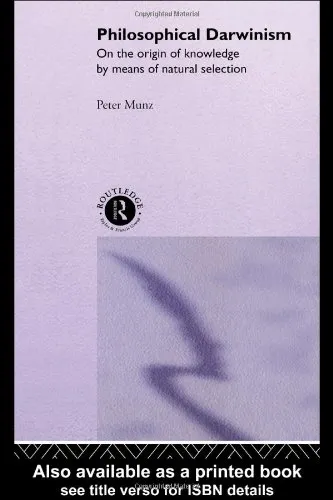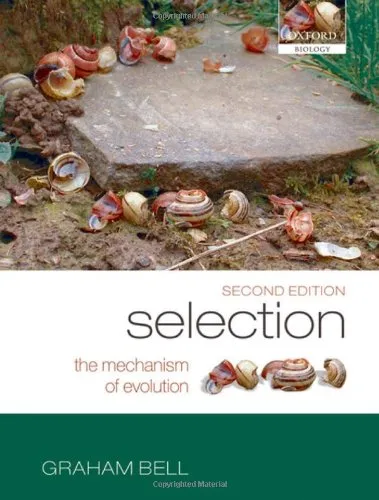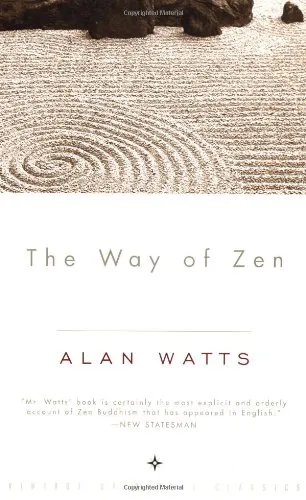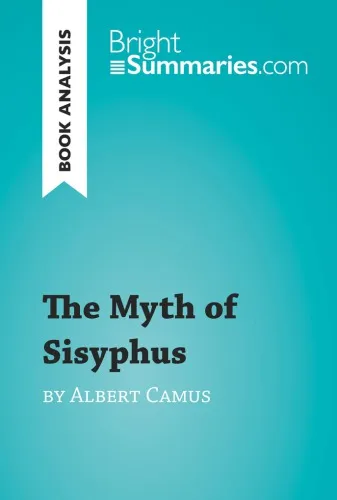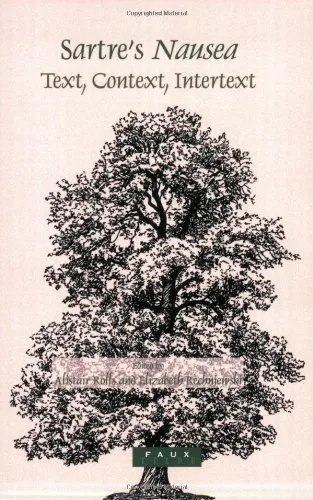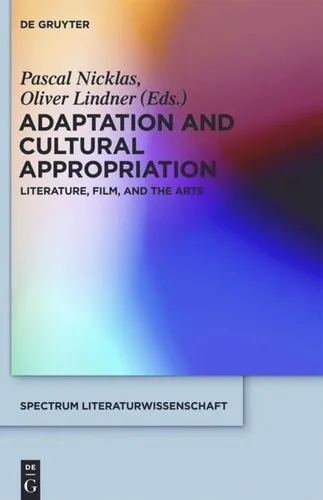Philosophical Darwinism - On the Origin of Knowledge by Means of Natural Selection
4.0
بر اساس نظر کاربران

شما میتونید سوالاتتون در باره کتاب رو از هوش مصنوعیش بعد از ورود بپرسید
هر دانلود یا پرسش از هوش مصنوعی 2 امتیاز لازم دارد، برای بدست آوردن امتیاز رایگان، به صفحه ی راهنمای امتیازات سر بزنید و یک سری کار ارزشمند انجام بدینکتاب های مرتبط:
معرفی جامع کتاب 'Philosophical Darwinism - On the Origin of Knowledge by Means of Natural Selection'
کتاب 'Philosophical Darwinism' نوشته پیتر مانز به بررسی منشأ دانش از دیدگاه نظریه انتخاب طبیعی میپردازد. این کتاب تلاش میکند تا با استفاده از مبانی زیستفناوری محور داروین، به تبیین توسعه و انتقال دانش در جامعه بشر بپردازد.
خلاصهای از کتاب
در این کتاب، مانز با تحلیل نظریه انتخاب طبیعی به دنبال کشف ارتباطات میان منشأ دانش و فرآیندهای زیستی است. او بر این باور است که همانطور که موجودات زنده برای بقا رقابت میکنند، ایدهها و مفاهیم نیز در ذهن بشر تحت فشارهایی مشابه انتخاب میشوند. این کتاب از این منظر به فلسفه نگاهی تازه دارد و سعی دارد تا از طریق بیان مثالهای گسترده و تحقیقات بنیادین، این رابطه را به خوانندگان نشان دهد.
علاوه بر این، نویسنده به کاوش در تفاوتها و شباهتهای میان تکامل بیولوژیکی و تکامل معرفتی میپردازد و بررسی میکند که چگونه مکانیسمهایی مشابه در هر دو حوزه عمل میکنند. مانز اشاره میکند که در فرآیند جستجوی حقیقت، همانطور که در طبیعیترین محیطها مشاهده میشود، رقابت و همکاری دو عامل کلیدی در توسعه دانش هستند.
نکات کلیدی
- بررسی عمیق رابطه بین فلسفه و نظریه داروین.
- کشف چگونگی تکامل دانش همراه با تکامل زیستی انسانها.
- نقش انتخاب طبیعی در فرآیند تصمیمگیری و یادگیری در جامعه.
- تفاوتها و شباهتهای میان تکامل بیولوژیکی و معرفتی.
جملات معروف از کتاب
"آنچه ما به عنوان دانش میشناسیم، تنها برآیند نهایی انتخاباتی سخت و پیچیده است که در ذهنهای ما رخ میدهد."
"علم و فلسفه دو روی یک سکهاند؛ یکی از طریق تجربه و دیگری از طریق تأمل کار میکند، اما هر دو در جستجوی حقیقتاند."
چرا این کتاب مهم است؟
کتاب 'Philosophical Darwinism' با ارائه دیدگاهی نوین از رابطه میان فلسفه، علم، و زیستشناسی، چالشهایی جدید برای پژوهشگران و علاقهمندان به این حوزهها ایجاد میکند. همچنین، این کتاب ابزاری قوی برای درک بهتر از فرآیندهای تفکر انسانی و نحوه شکلگیری دانش و علم در تاریخ بشر ارائه میدهد. با تعمق در مفاهیم اساسی این کتاب، خوانندگان میتوانند به درک عمیقتری از نقش انتخاب طبیعی در حوزههای غیر زیستی پی ببرند و تصور روشنی از سازوکار پیدایش دانش در ذهن بشر کسب کنند.
Welcome to the enlightening world of 'Philosophical Darwinism - On the Origin of Knowledge by Means of Natural Selection', a profound exploration of how evolutionary theory can extend beyond biology to offer insights into the development and transmission of human knowledge. As we dive into this groundbreaking work, we unravel the intersections of philosophy, epistemology, and Darwinian evolution to engage with fundamental questions about the nature of knowledge itself.
Detailed Summary of the Book
'Philosophical Darwinism' presents an innovative discourse that repositions Charles Darwin's theories within the realm of epistemology. Through meticulous argumentation, the book asserts that knowledge, much like biological traits, evolves through a natural selection process. It proposes a paradigm where human understanding and intelligence are products of an evolutionary journey, shaped by adaptation to our environment. The book elucidates how memes, akin to genes, propagate through cultures, shaping collective cognition and societal evolution.
The narrative traverses numerous intellectual landscapes, incorporating insights from science, history, and philosophy. Peter Munz argues against the notion of static knowledge, emphasizing the dynamic and ever-changing nature of human understanding. By treating knowledge as an evolutionary phenomenon, the book delves into how societies accumulate wisdom, discard obsolete ideas, and adapt to existential challenges.
Munz eloquently discusses how the application of Darwinian principles can demystify complex philosophical queries. From the development of language to the propagation of scientific ideas, the work intricately links diverse cognitive phenomena to evolutionary mechanisms. This philosophical journey not only questions but also expands the boundaries of traditional epistemology.
Key Takeaways
- Knowledge, like biological species, undergoes a process of selection and evolution.
- Human cognition is not the sole domain of conscious reasoning but is deeply rooted in evolutionary history.
- Cultural and intellectual progress mirrors the biological survival of the fittest, with ideas competing for dominance.
- The evolution of language, culture, and science can be better understood through Darwinian frameworks.
- Munz challenges traditional epistemological views by positioning knowledge as a dynamic, evolving entity.
Famous Quotes from the Book
“Just as living organisms adapt to their physical environment, human knowledge evolves to fit our cognitive landscape.”
“Ideas must compete for survival in a conceptual arena where only the fittest endure.”
Why This Book Matters
'Philosophical Darwinism' is a seminal contribution to the dialogue between science and philosophy. By applying Darwinian principles to the realm of knowledge, it invites us to reconsider how we perceive the growth and adaptation of human understanding. This book matters not only for its interdisciplinary approach but also for its potential to inspire new ways of thinking about knowledge, culture, and human intellectual evolution. Peter Munz offers a compelling vision that encourages readers to embrace the fluidity of knowledge and the continuous nature of intellectual discovery.
دانلود رایگان مستقیم
شما میتونید سوالاتتون در باره کتاب رو از هوش مصنوعیش بعد از ورود بپرسید
دسترسی به کتابها از طریق پلتفرمهای قانونی و کتابخانههای عمومی نه تنها از حقوق نویسندگان و ناشران حمایت میکند، بلکه به پایداری فرهنگ کتابخوانی نیز کمک میرساند. پیش از دانلود، لحظهای به بررسی این گزینهها فکر کنید.
این کتاب رو در پلتفرم های دیگه ببینید
WorldCat به شما کمک میکنه تا کتاب ها رو در کتابخانه های سراسر دنیا پیدا کنید
امتیازها، نظرات تخصصی و صحبت ها درباره کتاب را در Goodreads ببینید
کتابهای کمیاب یا دست دوم را در AbeBooks پیدا کنید و بخرید
1310
بازدید4.0
امتیاز0
نظر98%
رضایتنظرات:
4.0
بر اساس 0 نظر کاربران
Questions & Answers
Ask questions about this book or help others by answering
No questions yet. Be the first to ask!
